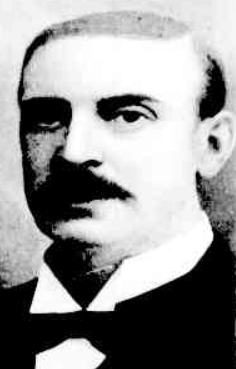Philip E. Muskett
Philip Edward Muskett (1857–1909) was an Australian surgeon and public health reformer, best known for his work in advocating for dietary improvements and public health measures in late 19th and early 20th century Australia. His most notable publication, "The Art of Living in Australia" (1893), emphasized the importance of diet, exercise, and the adaptation of European lifestyle to the Australian climate for the improvement of health.
Early Life and Education[edit | edit source]
Philip Edward Muskett was born in 1857 in Sydney, New South Wales. Details of his early education are sparse, but he went on to study medicine at the University of Sydney, where he graduated with a degree in medicine and surgery. After completing his studies, Muskett travelled to England to further his medical training, a common practice among Australian doctors at the time.
Medical Career[edit | edit source]
Upon returning to Australia, Muskett began his medical practice, focusing on surgery. He quickly gained a reputation for his skill and dedication, becoming a respected figure in the medical community. However, it was his interest in public health, particularly the impact of diet and lifestyle on health, that would define his legacy.
Public Health Advocacy[edit | edit source]
Muskett was deeply concerned with the high rates of dietary-related diseases he observed in Australia, such as scurvy and digestive disorders, which he attributed to the poor adaptation of the British diet to the Australian climate. In response, he published "The Art of Living in Australia," which provided guidance on diet, including the increased consumption of fruits and vegetables, and the importance of physical exercise. The book also contained recipes adapted to the Australian context, making it a practical guide for the public.
His advocacy extended beyond diet. Muskett was vocal about the need for improved sanitation and public health infrastructure, arguing that these were essential for preventing disease and improving the overall health of the population. He was involved in various public health campaigns and was a member of several medical and public health organizations, through which he sought to influence policy and practice.
Legacy[edit | edit source]
Philip E. Muskett's work had a significant impact on public health and diet in Australia. "The Art of Living in Australia" remains a seminal text in the field of nutrition and public health in the country. His efforts contributed to a shift in public attitudes towards diet and health, and his advocacy played a role in the development of public health policies in Australia.
Muskett's legacy is also evident in the continued emphasis on the importance of diet and lifestyle in the prevention of disease within Australian public health policy. His work paved the way for future generations of public health advocates and reformers in Australia.
Death[edit | edit source]
Philip E. Muskett died in 1909. His contributions to medicine and public health, however, have ensured that his influence endures in the field of public health in Australia.
Search WikiMD
Ad.Tired of being Overweight? Try W8MD's physician weight loss program.
Semaglutide (Ozempic / Wegovy and Tirzepatide (Mounjaro / Zepbound) available.
Advertise on WikiMD
|
WikiMD's Wellness Encyclopedia |
| Let Food Be Thy Medicine Medicine Thy Food - Hippocrates |
Translate this page: - East Asian
中文,
日本,
한국어,
South Asian
हिन्दी,
தமிழ்,
తెలుగు,
Urdu,
ಕನ್ನಡ,
Southeast Asian
Indonesian,
Vietnamese,
Thai,
မြန်မာဘာသာ,
বাংলা
European
español,
Deutsch,
français,
Greek,
português do Brasil,
polski,
română,
русский,
Nederlands,
norsk,
svenska,
suomi,
Italian
Middle Eastern & African
عربى,
Turkish,
Persian,
Hebrew,
Afrikaans,
isiZulu,
Kiswahili,
Other
Bulgarian,
Hungarian,
Czech,
Swedish,
മലയാളം,
मराठी,
ਪੰਜਾਬੀ,
ગુજરાતી,
Portuguese,
Ukrainian
Medical Disclaimer: WikiMD is not a substitute for professional medical advice. The information on WikiMD is provided as an information resource only, may be incorrect, outdated or misleading, and is not to be used or relied on for any diagnostic or treatment purposes. Please consult your health care provider before making any healthcare decisions or for guidance about a specific medical condition. WikiMD expressly disclaims responsibility, and shall have no liability, for any damages, loss, injury, or liability whatsoever suffered as a result of your reliance on the information contained in this site. By visiting this site you agree to the foregoing terms and conditions, which may from time to time be changed or supplemented by WikiMD. If you do not agree to the foregoing terms and conditions, you should not enter or use this site. See full disclaimer.
Credits:Most images are courtesy of Wikimedia commons, and templates, categories Wikipedia, licensed under CC BY SA or similar.
Contributors: Prab R. Tumpati, MD

